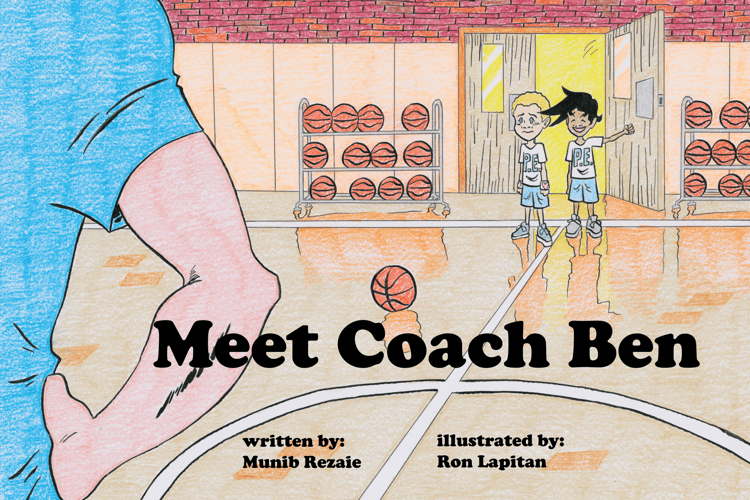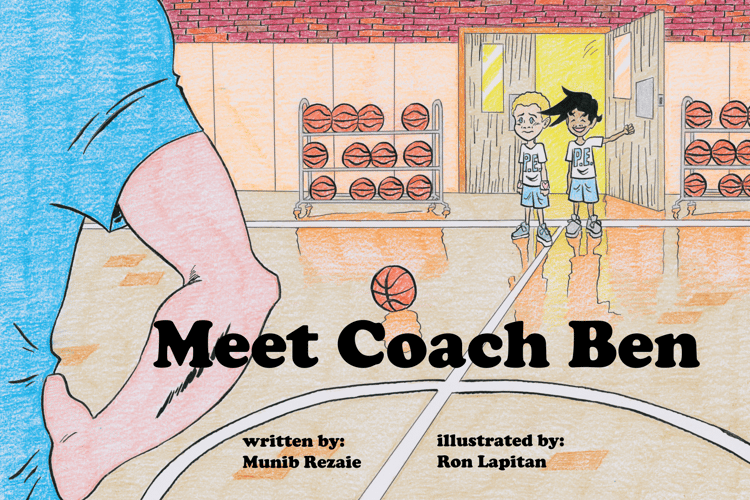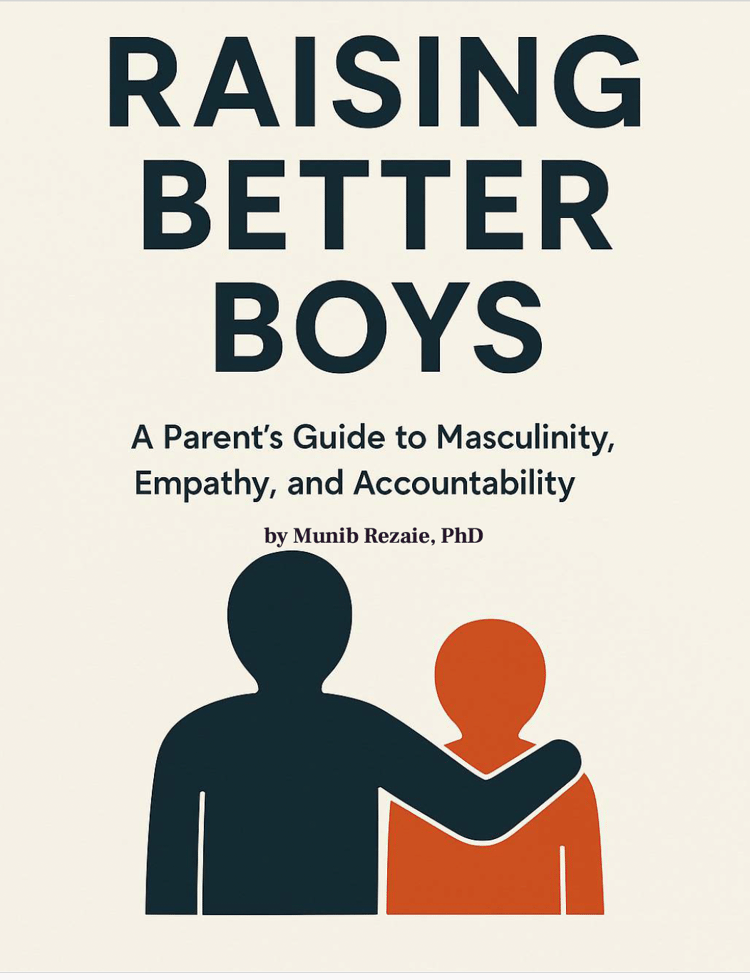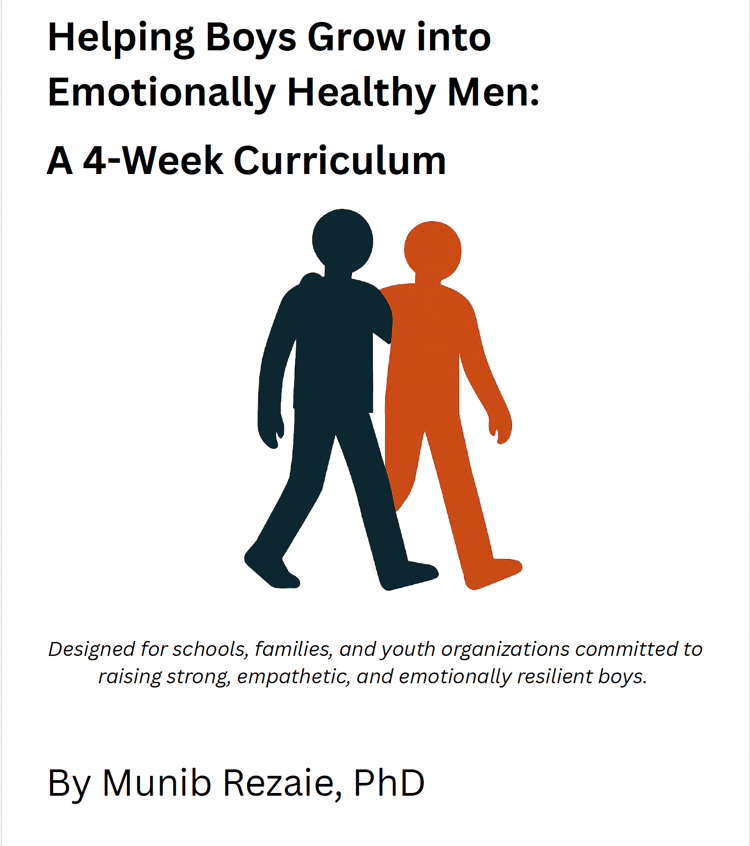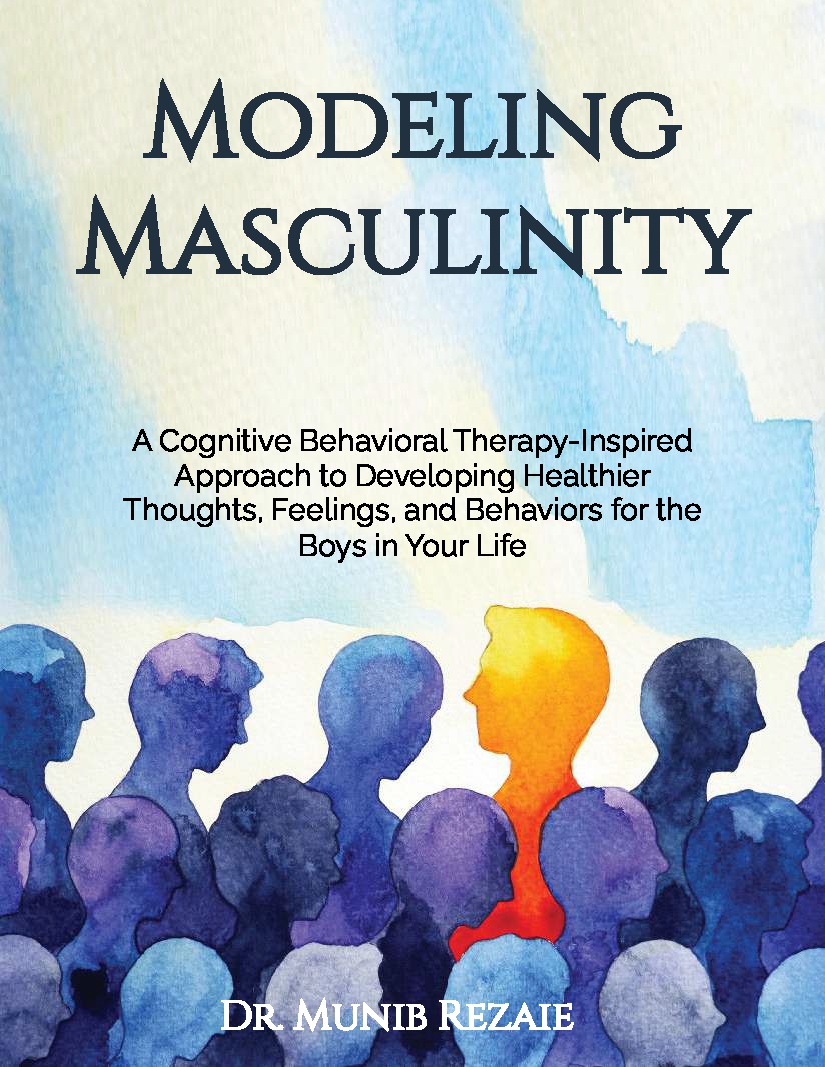
Modeling Masculinity: A CBT-Inspired Guide
We’re raising boys in the age of Andrew Tate, manosphere influencers, and viral “alpha male” advice — and it’s not going well. Boys are absorbing harmful messages about what it means to “be a man,” and too many of them are growing up emotionally disconnected, ashamed of vulnerability, and unsure how to treat others with care and respect.
This guide is for the adults who want to change that.
Whether you’re a dad, teacher, coach, mentor, or caring adult, Modeling Masculinity offers a practical, compassionate roadmap for modeling healthier, more emotionally grounded masculinity even while you’re still figuring it out yourself.
Structured Using a CBT-Inspired Framework
Each chapter of the guide is built around a Cognitive Behavioral Therapy (CBT)-inspired format that examines how boys learn harmful cultural messages and how to shift those patterns through intentional modeling and reframing:
- Old Thinking: The unhelpful beliefs, feelings, and behaviors boys often absorb from their environment
- New Thinking: Healthier, emotionally intelligent thoughts, feelings, and actions to model instead
- Reflection & Practice: Thought-provoking prompts and real-life language to help you apply these insights in your everyday interactions
What It Covers
The guide is structured around four key areas where boys often receive narrow or toxic definitions of masculinity:
- Emotions – Helping boys name, express, and embrace their feelings without shame
- Women – Modeling respect, empathy, and equality in how we talk about and treat women
- Accountability & Failure – Showing how to own mistakes without spiraling into shame or defensiveness
- Strength – Redefining power not as dominance or detachment, but as compassion, resilience, and presence
Each section offers tangible, age-appropriate guidance to help you shape the kind of emotional and relational maturity boys rarely see modeled in today’s culture.
What This Guide Will Help You Do
- Shift from lecturing to modeling: because kids learn more from what we do than what we say
- Introduce boys to a broader, more flexible definition of masculinity
- Equip yourself with the tools to talk about emotions, power, gender, and failure in clear, affirming ways
- Challenge toxic norms while staying grounded, hopeful, and honest about your own growth
If you want to raise boys who are emotionally aware, respectful, resilient, and kind — and make sure you’re modeling the same — this is your guide.

